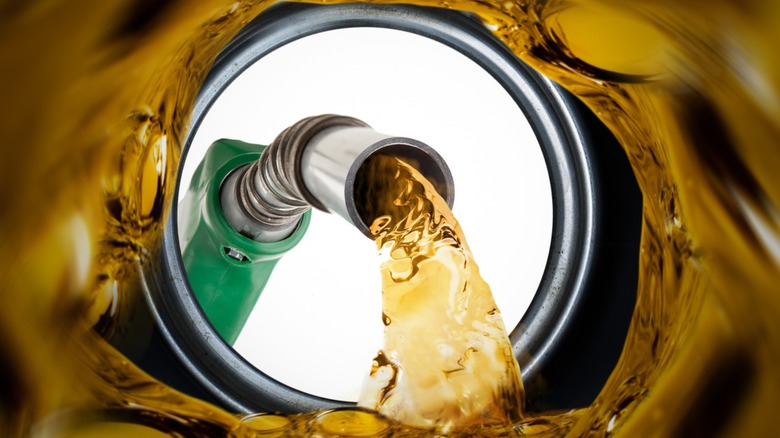Your Gas Tank (Likely) Doesn't Need To Be Cleaned - It's A Common Mechanic Scam
There are very few, very specific instances that would require the labor-intensive and expensive cleaning of a car's fuel tank. In fact, most cars made in the last 20 or so years should hardly require it, since they come with sealed tanks and sophisticated filtration systems that prevent debris from ever reaching the engine. Unless you've accidentally filled up with contaminated fuel, let the car sit unused for many months or years, or are driving a vintage model with a rusty metal tank, there's virtually no reason to clean the gas tank. If it was something that should happen often, if at all, it would be in many car manufacturers' maintenance schedules — but it's not.
That won't stop some shady mechanics from selling it to you, though. They will suggest it to pad up a repair bill when the real issue is something else, like a dirty filter or failing fuel pump. In many cases, the mechanic is banking on the fact that most car owners don't know how rare tank contamination actually is. They'll use vague terms like "bad gas" or "sludge buildup" to justify the charge, knowing full well that a simple fuel filter replacement or injector cleaning would fix the problem. Since fuel tank cleaning can cost hundreds of dollars in labor, it's an easy way to inflate the bill.
What to do if you suspect you're getting scammed
First, look at how your car is actually behaving. Real signs of a contaminated tank are quite similar to any fuel system issue; you'll notice stalling, rough idling, or hesitation right after a fill-up — especially if it started after buying questionable gas or if the car's been sitting for months. Even then, a mechanic should be able to rule out simpler causes first, like a clogged fuel filter, dirty injectors, or a failing fuel pump. These parts are far more likely to be the problem and are much cheaper to replace. If a shop jumps straight to "tank cleaning" without showing you dirty fuel or visible rust, that's a red flag.
Ask to see evidence. If the mechanic claims your fuel is contaminated, they should be able to drain some and show you discoloration, water separation, or sediment. Don't settle for vague handwaving; ask to see the gunk. If they can't or won't, walk away or get a second opinion from another shop. Gas tank cleaning should be a last resort option, not routine, and a good mechanic knows that.

